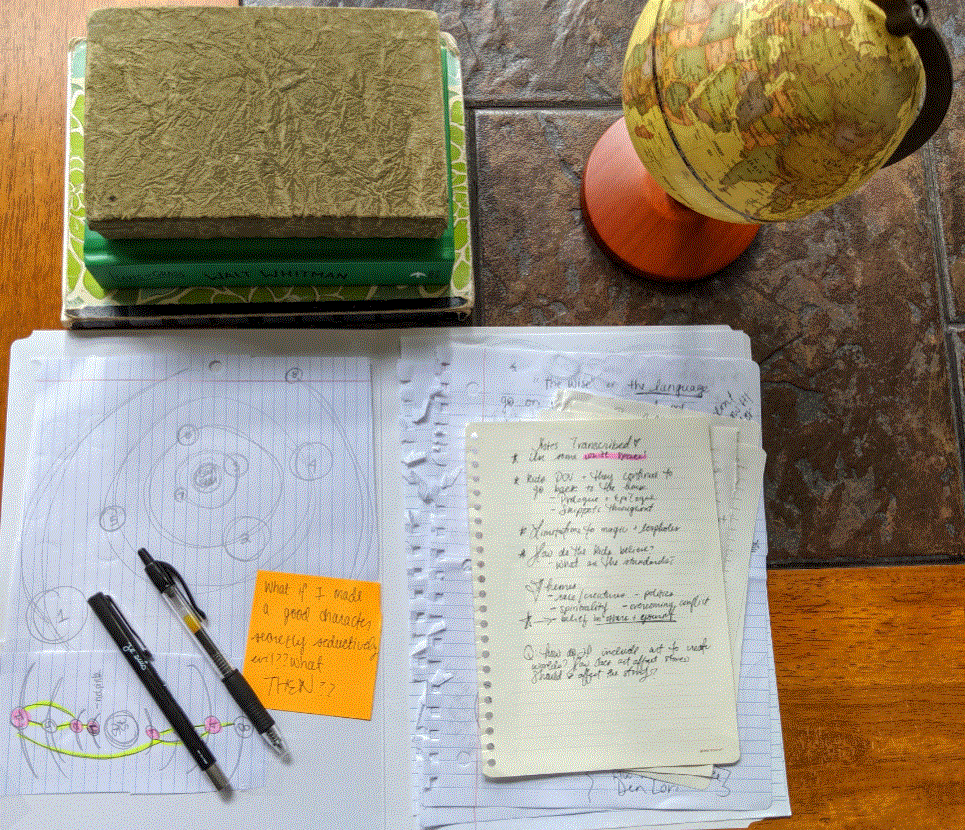As writing styles evolve and new mediums become available for writers to share their work, traditional novels and structured poetry become less common among contemporary readers and writers. Experimental writing, while posing as radical to traditionalist writers, is gaining momentum and popularity.
About a year ago, I took a Fiction Workshop course for my English major. The theme for this course was “experimental” writing. At first, I was taken aback and discourged by the theme. Experimental? What does that even mean? That sounds so weird!
For the entire semester, our professor walked our class through our writing and encouraged us to explore new mediums, new formats, and new styles of writing. Within only a few weeks, experimental writing became less daunting and I found myself ridiculously excited.
So what is experimental writing?
Considering the entire idea of experimental writing is based off of destabilizing traditional approaches to writing, pinpointing a definition is contradictory to the purpose of experimental writing. However, there are a few things that are common among experimental writers and piece of literature.
Breaking conventions of traditional writing.
Many traditional novels follow strict conventions and depending on the genre and time period of the author, the novel may even have a strict storyline. However, the 20th century harbored new ways of viewing literature, education, and writing. With both World Wars stirring up diplomatic ties and mixing cultures across the globe, new approaches to writing became popular. The end of the World Wars and the American Civil Rights Movement, Feminist Movement, and changes to traditional lifestyles, also invited new writing techniques in the United States.
Some of these techniques have been turned into completely separate genres, while other are only used rarely. Nevertheless, these elemente and techniques are often (but not always) utilized in experiemental writing.
- Having a disturbing theme or character either at the forefront or lurking in the background.
- Using multiple genres. This can mean combining mythology and poetic chants with a science fiction story or overlapping prose with fantastical narrations.
- Having unusual characters. This can be done in many ways but often times the main characters are categorized as a social outcast. The options vary but some examples are people who are clinically insane, physically and mentally advanced, or they can be a part of a minority group.
- Common experimental writing and post-modern writing have a strange narration style. This can mean that the plotline is hard to follow or the story itself is difficult to understand.
- Many experiemental writers will also remove conventional elements of the novel such as a protagonist, basic setting description, or a plotline.
Sometimes difficult to read and/or intellectually challenging.
The term “experimental” can be used to describe many forms of writing, but overall, much of the experimental genre is often meant to be intellectually challenging and consequently difficult to to read.
One of the common conventions of experimental writing is to force the reader to view the story and the rest of the world from a new perspective. In comparison to the traditional point-of-view of the protagonist in most novels, experimental writing often uses unusual points-of-view to challenge the reader to engage more fully in the story. By doing so, experimental writers are challenging modern notions of storytelling and therefore bringing new and unexpected trials to the reader.
Another common technique in experimental writing is having imbalanced writing focuses. However, this is not necessarily a bad thing. By doing so, the writer can place focus on certain aspects of writing such as particular themes, characters, and ideas. Interestingly, this imbalanced narration can force the reader to apply a realistic lense to the story and bring a new perspective to the meaning of the story. Yet,while these imbalanced focuses are intriguing, they also require a new level of commitment from the reader.
How do I use experimental techniques?
My current project is heavily influenced by the idea of believability: I want to create a truly fictional story but make it personal and realistic enough that the reader completely believes that the story is real. I want people to believe my story, because I think that’s where the actual magic is.
Considering this idea of believability, I have added several elements to my story such as documents and records that display the manuscript’s travel to Earth, mysterious connections to other galaxies, and overarching religions that travel across the universe and different dimensions. All of this has been done to achieve a sense of believable realism for the reader and can be considered an element of experimental fiction.

Another aspect of experimental writing that I utilize is the collaboration of genres and artforms in my writing. Considering my wide interest in artforms from dance to music and writing, I have been working to combine these aspects of my life into single acts, scenes, and practices within my fictional stories. One example of this would be my creation of a religious physical practice in my current series that combines mixed martial arts, dance, and yoga into a single religious practice.
In addition to combining artforms, I also try to combine genres in my writing. Usually, I gear toward fantasy writing, however, by adding futuristic technology to fantastical elements and old-fashioned objects, my writing has moved from “traditional fantasy” to “timeless.” I have also been working with involving forms of poetry into my writing, either if that’s creating a dialect that sounds like fluent prose, or adding in lyrics of ancient ballads.
While many people have felt uncomfortable with the new emergence of contemporary, post-modern, and/or experimental writing, these new genres and style have benefitted many writers, myself included. Even if these ideas aren’t your forte, trying out some “experimental” writing techniques or exploring new genres can expand your capacities as a writer and help you find that inner voice!
Looking for some experimental reads? Try these out:
- Italo Calvino If on a winter’s night, a traveler and Invisible Cities
- James Joyce Ulysses and Finnegan’s Wake
- Jamaica Kincaid At the Bottom of the River
- Kurt Vonnegut Slaughterhouse–Five and Cat’s Cradle
- George Orwell Animal Farm and 1984
- Bret Easton Ellis American Psycho
- Aldous Huxley Brave New World
- Fydor Dostoyevsky Notes From Underground
- Ken Kesey One Flew Over the Cuckoo’s Nest
- Neil Gaiman American Gods
